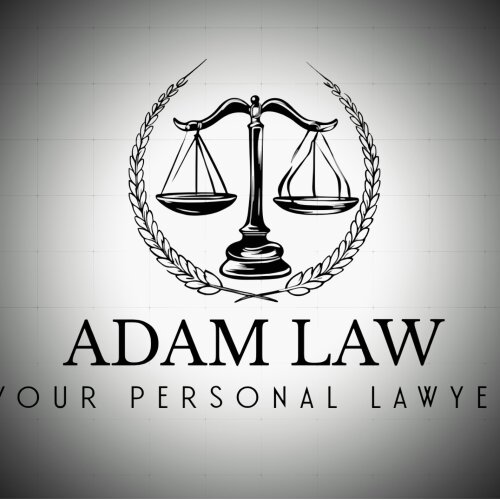
Best Trusts Lawyers in Sweden
Share your needs with us, get contacted by law firms.
Free. Takes 2 min.
Or refine your search by selecting a city:
List of the best lawyers in Sweden

About Trusts Law in Sweden
The concept of trusts, as traditionally understood in common law jurisdictions, does not exist in the same form in Sweden, a civil law country. In Sweden, property and asset management is regulated differently, relying on concepts such as foundations ("stiftelse") and other contractual arrangements. However, Sweden recognizes foreign trusts under certain international frameworks and agreements. For individuals looking to manage estates, assets, or who have interests in international arrangements, understanding the intricacies of how trusts interact with Swedish law is crucial.
Why You May Need a Lawyer
There are several scenarios where seeking legal advice regarding trusts in Sweden might be necessary. These include:
- You have international ties and assets under a traditional trust arrangement and need guidance on compliance with Swedish law.
- You're involved in estate planning and wish to establish a structure similar to a trust within Sweden's legal framework.
- You are a beneficiary of a foreign trust and require advice on taxation and legal rights within Sweden.
- There are disputes or legal challenges involving a trust with links to Swedish jurisdiction.
- Understanding inheritance tax implications for non-Swedish trusts holding assets within Sweden.
Local Laws Overview
Key aspects of Swedish laws relevant to trusts and similar arrangements include:
- Foundations: Foundations are legal entities often used for asset management, benefaction, and holding purposes within Sweden.
- Contractual Arrangements: Without a direct equivalent to trusts, Swedes use comprehensive contracts to specify asset management intentions.
- International Recognition: Sweden adheres to the Hague Convention on the Law Applicable to Trusts and on their Recognition, facilitating the understanding and enforcement of foreign trusts where relevant.
- Taxation: There are specific tax laws regarding foreign trusts which affect how beneficiaries are taxed in Sweden, including gift and inheritance tax considerations.
Frequently Asked Questions
What is the closest equivalent to a trust in Sweden?
The closest equivalent to a trust in Sweden is a foundation, although it functions differently from a traditional trust.
Can I establish a trust in Sweden?
Sweden does not have a trust law per se, but you can manage similar objectives through foundations or specialized contractual arrangements.
How are foreign trusts treated under Swedish law?
Foreign trusts may be recognized under specific circumstances governed by international conventions, such as the Hague Convention.
What are the tax implications for a Swedish beneficiary of a foreign trust?
Beneficiaries may have to declare distributions from foreign trusts as part of their taxable income, subject to Swedish tax law.
What legal documents will I need to review or create for a foundation?
Key documents include foundation statutes, governing board meetings, and financial statements compliant with specific regulatory requirements.
Can I use a trust to avoid inheritance tax in Sweden?
Sweden has no inheritance tax, but trusts created to avoid taxes in other jurisdictions should be approached with caution and legal advice.
What happens if there is a dispute over a trust with Swedish interests?
Legal disputes involving trusts with links to Sweden typically require resolution through Swedish courts or through arbitration procedures.
Do Swedish banks offer trustee services?
Swedish banks typically do not offer trustee services but may provide administration services for foundations or similar structures.
Are there special considerations for charitable trusts in Sweden?
When setting up a charitable entity, using a foundation with a clear charitable purpose may be beneficial, requiring adherence to specific regulations.
How do trusts relate to asset protection in Sweden?
Since traditional trusts do not exist, asset protection typically involves using legal entities like limited companies or foundations, reflecting the individual's protection goals.
Additional Resources
For more information and resources, consider consulting the following:
- Swedish Tax Agency (Skatteverket): Offers guidance related to taxation, including for international issues.
- The Swedish Financial Supervisory Authority (Finansinspektionen): Provides oversight and information on financial entities, including foundations.
- Hague Conference on Private International Law: Offers insights into international conventions affecting trusts.
- Swedish Association of Foundations (Svenska Stiftelser): A national organization supporting foundations, offering resources and information.
Next Steps
If you need legal assistance concerning trusts or similar structures in Sweden, consider these steps:
- Identify your specific needs, whether they involve estate planning, tax advice, or compliance with international law.
- Consult with a legal professional specializing in property law and international trust and estate matters.
- Prepare all relevant documents concerning your assets and any existing trust agreements before meeting with a lawyer.
- Engage with professionals who understand both Swedish and relevant international legal contexts for trust and asset management.
Taking these steps will ensure you receive comprehensive advice tailored to your circumstances and legal requirements within Sweden.
Lawzana helps you find the best lawyers and law firms in Sweden through a curated and pre-screened list of qualified legal professionals. Our platform offers rankings and detailed profiles of attorneys and law firms, allowing you to compare based on practice areas, including Trusts, experience, and client feedback.
Each profile includes a description of the firm's areas of practice, client reviews, team members and partners, year of establishment, spoken languages, office locations, contact information, social media presence, and any published articles or resources. Most firms on our platform speak English and are experienced in both local and international legal matters.
Get a quote from top-rated law firms in Sweden — quickly, securely, and without unnecessary hassle.
Disclaimer:
The information provided on this page is for general informational purposes only and does not constitute legal advice. While we strive to ensure the accuracy and relevance of the content, legal information may change over time, and interpretations of the law can vary. You should always consult with a qualified legal professional for advice specific to your situation.
We disclaim all liability for actions taken or not taken based on the content of this page. If you believe any information is incorrect or outdated, please contact us, and we will review and update it where appropriate.
Browse trusts law firms by city in Sweden
Refine your search by selecting a city.












